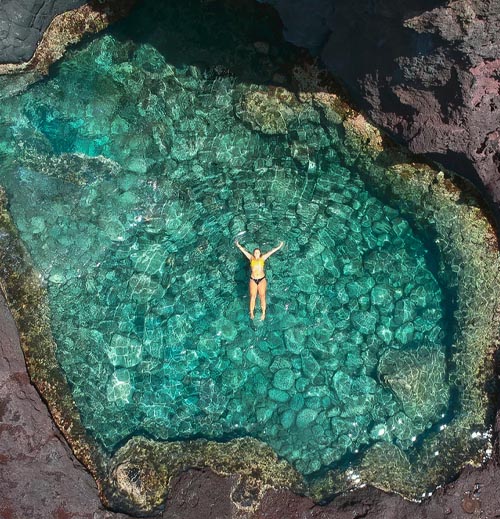- (808) 242•5000
- Send us an email
- Mon - Fri: 8:00 - 5:00
Recreational Activity Accident Attorneys in Maui

Recreational Activity Accident Lawyers In Maui
Lowenthal & Lowenthal recreational activity accident attorneys on Maui represent clients injured during leisure activities.
Maui offers plenty of fun recreational activities. Pristine beaches for swimming, surfing, and snorkeling. Kayaking along the coast of Olowalu and Kihei.
Outrigger canoeing, as Hawaii’s official team sport, attracts many tourists seeking Polynesian adventure on Maui. Snorkeling at Molokini Crater offers a volcanic atoll three (3) miles off Maui’s southern shore.
Hiking at Pipiwai Trail in Kipahulu treats visitors to a scenic bamboo forest reaching a breathtaking 400-foot waterfall. Mountain biking on the slopes of the Haleakala Volcano offers a 23-mile adventure with 28 switchbacks to explore.
Ziplining over Maui’s eucalyptus forests of the Haleakala Volcano excites thrill-seekers.
But, recreational accidents occur on Maui caused by negligence of the provider when the recreational activity provider fails to exercise reasonable care to protect guests and customers from injuries.
If you were injured while on a recreational activity on Maui and you believe the activity provider did not exercise reasonable care, don’t let those “waivers” scare you into thinking you have no rights.
how to file a recreational activity accident claim in maui:
First of all, don’t get intimidated by any “waiver” you signed before participating in a Maui recreational activity. Those waivers do not apply when the negligence occurred by the employees or activity provider.
Hawaii laws require all recreational companies to “exercise reasonable care”. Failing to do that becomes negligence which gives you the right to sue them for your injuries, medical costs, lost income, and your pain & suffering.
Follow these steps to make a claim for damages and learn more about your legal rights.
Inform The Recreational Activity Provider
If you’re able, it’s safe, and the recreational activity provider hasn’t responded to you yet, call for help from either the provider, or 911 if they aren’t available. If police arrive, they will hopefully document the scene, collect witness statements, and make a preliminary determination of what happened.
Document The Recreational Activity Accident
While you wait for the police to arrive take photos of the accident scene, the equipment’s condition, weather conditions, and your injuries. Your photos become evidence because no record exists after the staff cleans up the accident scene and replaces faulty equipment. Also, it helps your witnesses to remember how it happened.
Talk to the witnesses to see if they saw what happened to you and if they think the staff and company were responsible. Write down their full names, addresses, and phone numbers.
Get Medical Treatment
Sometimes shock and adrenalin suppress the pain. Bruising appears later. The next day neck and back injuries become apparent. You never know what internal injuries you suffered.
That’s why it’s important to let an ambulance come so medics may examine you at the accident scene. If they recommend it, go to the hospital. Make sure to tell the doctors and nurses about every pain you feel. Their notes of your pain and injuries become evidence in your favor.
Let the doctors take all the tests they request. Only x-rays, scans, and blood tests reveal what goes on internally. Accept all prescriptions.
After leaving the hospital, attend every physical therapy and medical treatment sessions. Don’t stop attending until the medical staff tells you to. Get renewals of all your prescriptions.
recreational injury claim deadlines
The statute of limitations in Hawaii for filing a negligence lawsuit is two (2) years from the date of the accident.
If the defendants include a city or county, you must file a claim within six (6) months from the date of the accident. Failure to meet this deadline may result in the lawsuit dismissed.
That’s why it’s important to hire an experienced Maui personal injury lawyer soon after your accident. It takes time for your lawyer to investigate your claim, interview witnesses, get the accident report, and other evidence.
Filing your insurance claims takes time. Negotiating with the defendants’ insurers also takes time. Before you realize it, paperwork needs filing to meet the six-month deadline.
Contact Lowenthal & Lowenthal now for a Free Evaluation of your claim.
what we do
Maui offers many recreational activities. Here’s a list of typical accidents in Maui:
Ocean Activity Injuries
Types of recreational activity injuries include ocean recreation. Like swimming, surfing, bodysurfing, bodyboarding, snorkeling, kayaking, boating, jet skis, and scuba diving.
These activities may result in cuts and broken limbs, brain and neck injury, drownings.
Bikes and Vehicle Accidents
Bike and vehicle accidents often result in broken or severed limbs, brain and neck injuries, spinal injury, or death. Getting into a taxi or renting a car could result in an accident. Tour busses sometimes get into accidents.
Ziplining
Ziplines depend on the lines, seats, safety belts, and other equipment to maintain safety.
Laziness, ziplining equipment malfunctions and employees failing to follow protocols lead to serious injuries. Falling from great heights causes serious injuries or death.
Horseback Riding
Horseback riding may lead to falling at high speeds or a fall with the horse landing on the rider. These lead to sprains, neck and back injuries, broken limbs, and even death.
contact a recreational activity accident lawyer
can i file a claim after a recreational activity injury if i signed a waiver?
Everyone knows about these waivers: you’re given a form with tiny print and places to initial and sign. You know this is a waiver, but what does it really do?
Not much. These waivers only protect recreational activity providers from “inherent risks” associated with the activity that have been properly explained and disclosed to guests.
Inherent risks are those types of risks that “come with the territory” and are beyond the control of the provider. These types of risk vary with every activity.
While these waivers do protect recreational activity providers against the “inherent risks” of the activity, the provider must still adequately disclose the risk. Additionally, the provider can never waive its own negligence. In other words, the provider cannot run its operation in an unsafe manner and then try to hide behind its waiver.
common places recreational accidents injuries happen
- Zipline Tours
- Catamaran boat tours
- RAIV boat tours
- Parasailing
- All-Terrain Vehicle (ATV) tours
- Horseback riding tours
- Nature tours
- Jet skiing
- Bicycle tours
- Snorkeling activities
- Kayaking activities
- Paddleboarding
- Surfing
- Windsurfing
- Helicopter Tours

Schedule a consultation to discuss your case with one of our attorneys.
Please fill out the form below; our legal team will get back to you within 24 hours.
*Please note this does not create an attorney-client relationship.
© 2020 All rights Reserved. Lowenthal & Lowenthal LLLC
The information presented on this website is for information purposes only and should not be used as a basis of legal advise or guidance. Using this website does not create an attorney-client relationship. Please contact us to see whether we are able to represent you.


